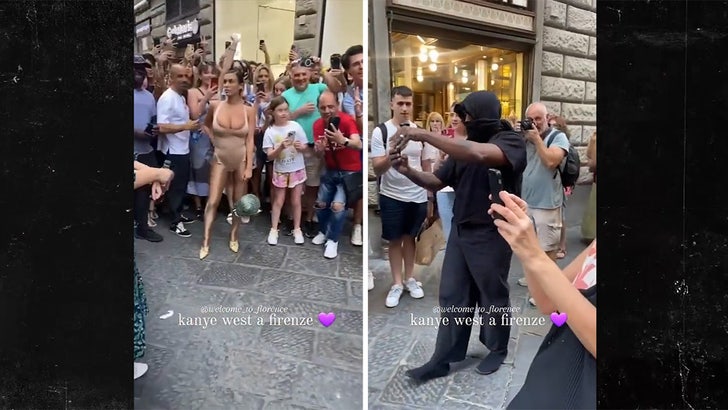

Oaxaca is a pretty city for tourists. Colonial architecture painted in warm, earthy colours, the wonderful and exciting Southern Mexican cuisine in stylish restaurants, and a safe city centre to wander around in and peek into courtyards…But this is not a tourist guide post.
Having written about the city’s austerity policies and their relation to insecurity and walking it as a researcher (and tourist), I was increasingly asking myself how people living in the city were actually dealing with the day-to-day effects of the insecurity-competitiveness nexus. I wanted to add a micro-level to the practices of authoritarian neoliberalism that I was observing, where different institutional scales converged in making a competitive, austere city. How do inhabitants (trans)form their everyday practices to navigate this attractive yet insecure city? In a recent article in Urban Geography, I draw on interview data collected in Oaxaca between 2017 and 2019 and argue that they adapt their day-to-day rhythms through varied practices of care and what I call ‘adapted mobilities’. They also make these everyday practices political through disruptions that affect the competitive city, beyond their neighbourhoods.
The article offers a relational reading of everyday social and political practices of urbanites in the face of urban insecurity and austerity, as I combine feminist perspectives on everyday practices in austerity, especially by Verónica Gago and Luci Cavallero and Sarah Hall with Doreen Massey’s relational geographies. Emerging literature on social responses to insecurity also exists (for instance, Villareal’s work), but rarely discusses the effects of neoliberal urbanism on security.
The boundaries between simple coping strategies and their political, collective and organised counterparts are blurry, as the former may also be quietly political. But such practices also jump scales. For instance, everyday care in response to widespread insecurity may turn into something else entirely when people decide they’ve had enough and consciously and collectively decide they will do something that affects broader scales. This is what neighbours did in Oaxaca when being more and more harassed, frequently extorted, by a criminal group they said was working with the local state’s blessing. Living close to the municipal landfill, when it all became too much, they closed the landfill access to call attention and to force state agents to do something about the situation they were living in. This is what I call ‘everyday scalar politics’. The term aims to bridge the inherently political character of everyday practices seen as routine and ordinary with the notion of urban everyday politics that captures their politicisation as organised and strategic practices.
My interviewees are well aware that the neighbourhoods elicited state action only by returning the waste to the competitive city, by insisting on their relational interaction with the more prosperous parts of the city, by ‘reaching out to others’. Blocking the landfill challenged the state. ‘Our form of pressure was to block the entry to the landfill, so the waste was all over the streets. That was the form of pressuring the government, which the neighbourhoods did together[…]’ one person told me.
Both Verónica Gago and Doreen Massey highlight how humans are interdependent and entangled in multiple (spatial) relations. For Gago, to confront the dispossession of the material conditions for life, we need alliances and have to foster collectivity, and that echoes Massey’s notion of ‘geographies of responsibility’, which connect the places, relations and networks in which we participate. Both suggest that collective practices are the condition for political agency. Looming debt and financial extraction, in contrast, confiscate ’the desire for transformation’ and present a form of ‘disciplining that wants us to be submissive for fear that everything could be even worse’, as Gago and Cavallero write..
Public-private strategies of competitiveness both fragment and enclose, homogenise and disrupt everyday urban practices, and they change which localities and spaces become part of the cognitive maps of social strata. Someone may decide not to visit certain areas anymore, bus drivers refuse to enter a neighbourhood. The care networks I observe emerge in this insecure context. They are relational spaces by definition, they produce closeness, and not necessarily between neighbours only.
Mobility in the competitive city highlights the gendered and racialised dimensions of the austerity/security nexus. It is particularly lower-class, racialised women that need to adapt their movement. However, mobility adaptation is not exclusive to them, but visible at varying scales in Oaxacan urban space. Neighbours accompany each other, and people move cautiously around town. Northern neighbourhoods, where walls mark the difference between a protected domestic and a reduced public space, may be safe spaces for higher social strata, but less safe for domestic workers.
In Oaxaca, austerity measures never equaled lower local police budgets, but rather led to even more selective policing, actual safety provision is strongest where Oaxaca is perceived as a tourist city and for those perceived as representative of the city’s competitiveness, but the focus on the tourism-friendly centre ‘creates like a veil. As if us locals knew the police does not help us in nothing. But the intent is to maintain an image towards tourism that it’s a safe city.’ (Interview with feminist activist, 14th December 2018). In response to this, everyday practices of care and adaptation can be more disruptive than we sometimes think.
The small, everyday acts become transformative and can be the seed from which longer-term political organising grows. They become disruptive once they transcend the neighbourhood scale to impact the wider, competitive city. Then they acquire a political power they did not possess.










